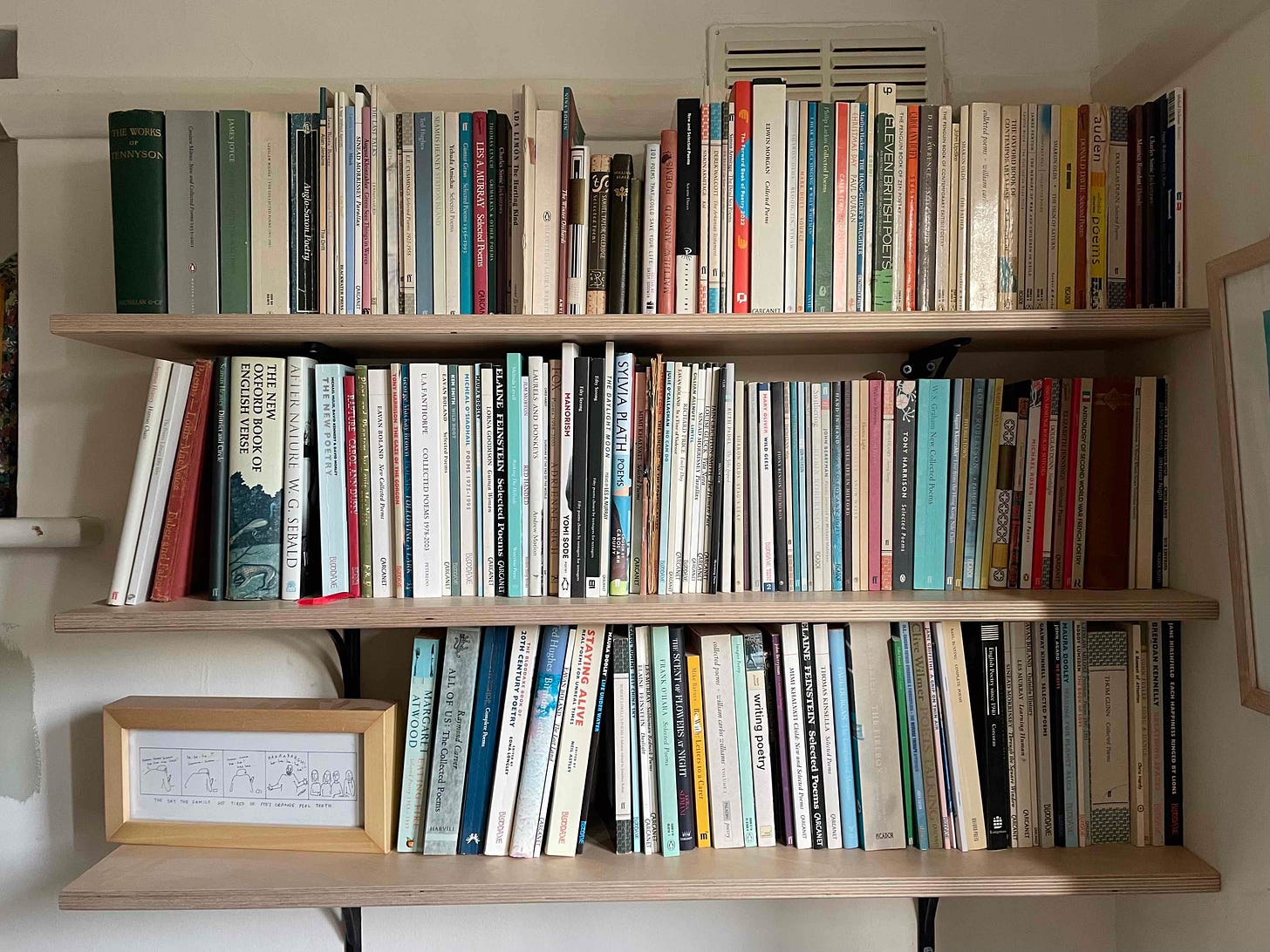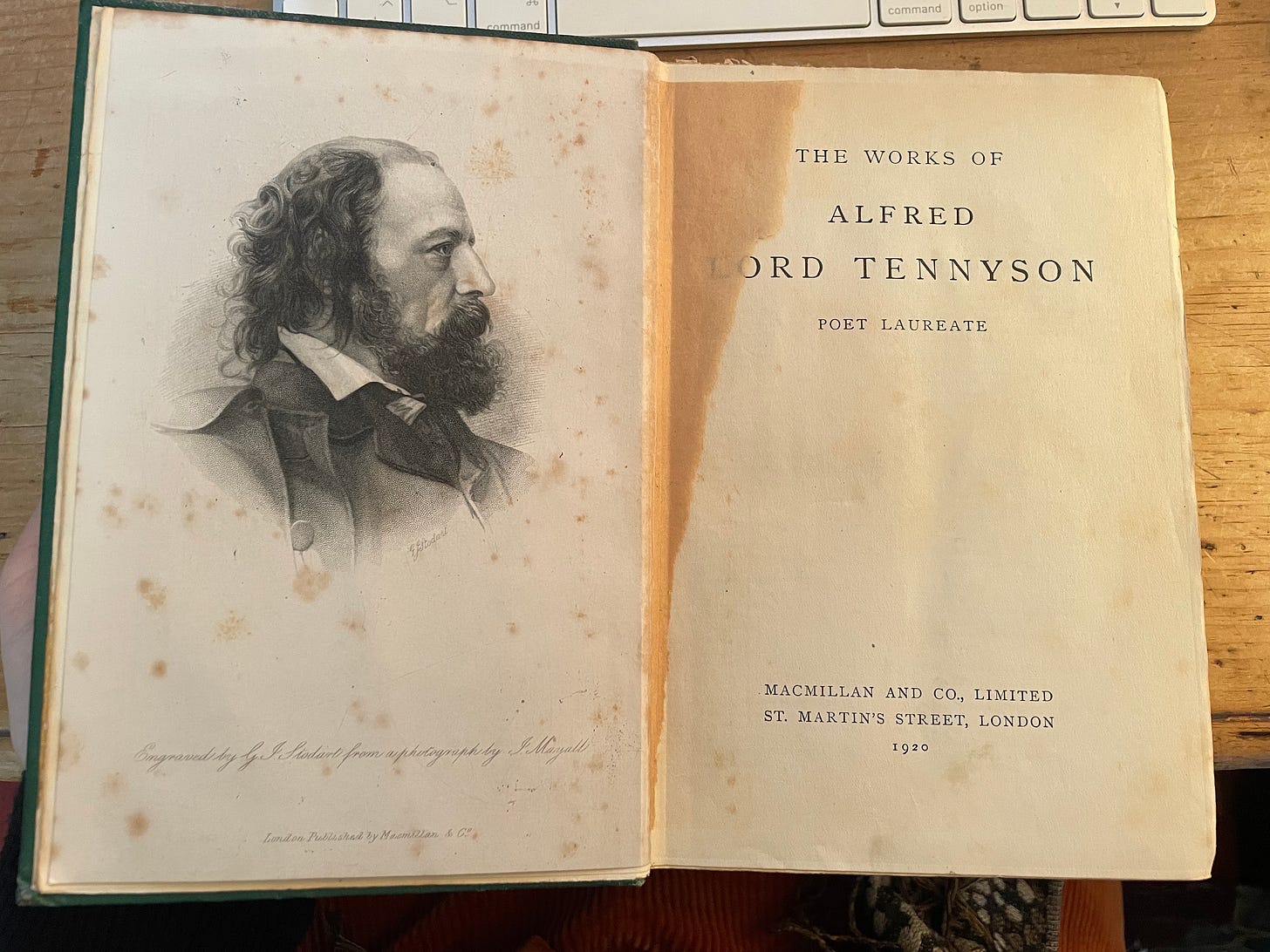A few months ago I was lucky enough to have three brand new, very pleasing shelves built in my office for my poetry collection. Once the furniture was put back in place I dumped the books onto the shelves in no particular order, relieved not to have them in boxes anymore and intending to sort them out in a theoretical future full of an abundance of time.
I’ve been looking at the shelves since then, keen to reacquaint myself with the books I was given as a teenager, or needed for my degree, or was sent when I worked on the Literature programme at the Southbank Centre, or bought sporadically in the many years since then. It’s a somewhat lopsided collection, kicked off by my granny and her love for Auden, Eliot and MacNeice, then focusing on the poets on my Contemporary Poetry MA syllabus (which I started in 1996) and eventually dominated by newly published books I came across during my time at the Southbank in the early Noughties. But there are all sorts of goodies in there, and poems I’ve carried around with me ever since, so that they almost feel part of me.
So as a way of dipping into the books again, bringing more poetry into my life and possibly finally having a sort out, I’ve decided to talk about some of them here in a strictly directional order – hopefully one poem a week from each book, taken from left to right, starting with the top shelf. I think I have around 200 books here, so that will see me through until 2028!
The Works of the very privileged, landowning and influential Victorian Alfred, Lord Tennyson is a nice thick book, resting at the leftmost edge of the top shelf to prevent others from toppling off, and so Tennyson is the first poet in this series. And because this week has held the anniversary of my mum’s death, I’ve chosen an excerpt from In Memoriam A. H. H., an elegy written in 1850 by Tennyson for his friend Arthur Henry Hallam, who died aged 22.
I must have bought this copy of Tennyson’s complete works in a second hand bookshop, perhaps in Manchester where I did my undergraduate degree. Throughout my first year at university I was extremely heartbroken as my boyfriend had decided, with some reason, that he didn’t want to be tied down at the age of 19. I remember reading In Memoriam for my course and feeling so… seen, although of course I wouldn’t have used that word in 1992. The elegy is long (2,916 lines of iambic tetrameter in 133 cantos) and discursive, and grapples with the religious and scientific ideas of the day. It contains the famous lines, 'Tis better to have loved and lost/Than never to have loved at all.’ And there are moments of exquisite sadness, when grief is described so accurately that this small, beautiful excerpt still gives me pause today.
If one should bring me this report,
That thou hadst touch'd the land to-day,
And I went down unto the quay,
And found thee lying in the port;
And standing, muffled round with woe,
Should see thy passengers in rank
Come stepping lightly down the plank,
And beckoning unto those they know;
And if along with these should come
The man I held as half-divine;
Should strike a sudden hand in mine,
And ask a thousand things of home;
And I should tell him all my pain,
And how my life had droop'd of late,
And he should sorrow o'er my state
And marvel what possess'd my brain;
And I perceived no touch of change,
No hint of death in all his frame,
But found him all in all the same,
I should not feel it to be strange.That wonderful, dreamlike image of the ship arriving into port, and Tennyson going down to the quay, greeting his affectionate friend, catching up on all the news… It’s magical thinking many years before Joan Didion, and perhaps a fantasy we’ve all had at some point when we’ve lost someone very dear.
Disclaimer: these are very personal thoughts and I am not an academic or critic.
Wherever possible I will use out of copyright material or link to existing web versions of the poems I discuss, and will also include links to buy the books if in print.





My previous knowledge of Tennyson is mostly The Charge of the Light Brigade, don’t think I’d even clicked that “tis better to have loved and lost” was his line. Oof that final line (“I should not feel it to be strange”) is exactly it! If they walked through the door it wouldn’t feel odd, what’s strange is their enduring absence.
Exactly. That line… The twists and turns of the brain as it tries to accept something that feels incomprehensible